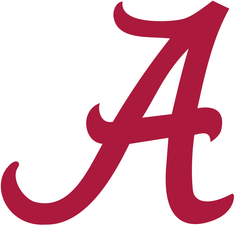Featured Quizzes
User Quizzes
Create Quiz
Data and Charts
Badges and Games
About JetPunk
JetPunk Shop
Dark Mode

Alabama Crimson Tide Football Trivia
Can you guess these facts about football program of the University of Alabama?
Rate:
Last updated: January 10, 2022
You have not attempted this quiz yet.
More quiz info >>
| First submitted | January 11, 2021 |
| Times taken | 985 |
| Average score | 82.4% |
| Rating | 5.00 | Report this quiz | Report |
4:00
Enter answer here
0
/ 17 guessed
Time Used
00:00
Best Time
00:00
The quiz is paused. You have remaining.
Scoring
You scored / = %
This beats or equals
% of test takers
also scored 100%
The average score is
Your high score is
Your fastest time is
Keep scrolling down for answers and more stats ...
|
|||||||||||||||||||||||||||||||||||||||||||||||||||
New and Popular
Save Your Progress
Copyright H Brothers Inc, 2008–2024
Contact Us | Go To Top | View Mobile Site

Is it still true that they're given bogus degrees to study?
Is it still true that their coaches and the NCAA bosses earn $millions off their backs?
Is it still true that 98% of them won't go on to be professional football players?
Is it still true that college sports in the USA is exploitation akin to slavery?
Or has it all changed in the last year or so?
Gladiator slaves lived like sultans too.
(Well, 2% of them did.)
Sound familiar?
I don't see it lasting much longer, and sincerely hope it doesn't.
Why on earth not have professional football youth academies? Young soccer players who get injured before reaching the A team at least leave having earned a decent wage before their dream was destroyed; these guys are out on the sidewalk with less than nothing if that happens - no degree, no work experience, no money for medical bills.
(how's my American?)
- It varies: many get no degree, some receive dubious degrees and some have legit degrees
- Absolutely, coaches and the NCAA make many millions.
- Overall, few turn pro. Of the Alabama-OSU players who actually played (as opposed to just on the roster) a much larger percent will be pro at least briefly (although it may still be less than half.)
- Exploitative? Yes. Slavery? No, that's a bit too hyperbolic.
- It is changing slowly with collective action by players (e.g., Missouri), changing rules on transfer and eligibility, and, likely, the right to name/image/likeness licensing in 2021-22.